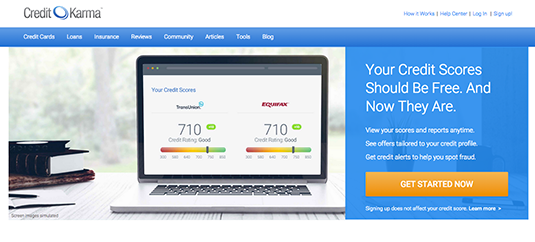The Credit Karma Business Model: Turning lose-lose, into win-win-win

Have you ever wondered how Credit Karma is able to provide your credit scores and reports for free, when so many others want to charge you? We’ve been able to do what others could not, because our business model is built on addressing a two-sided problem that has long impacted banks and consumers.
Advertising can be a tricky proposition for financial services providers. Most industries don’t have to worry about reaching the wrong consumer with their marketing. At worst, the consumer isn’t interested in the product. Credit cards and loans, however, are more difficult to advertise because they present a significant goldilocks problem: if your credit is too high, a particular product probably won’t interest you and if it is too low, you can get declined.
Imagine if this happened with other goods and services. You see a cool widget on TV, go to their site, and fill out the payment and shipping information. Instead of getting a confirmation page with shipping date, you are told that you represent too high of a risk to purchase it. You would rightfully be upset at the time wasted as well as being judged as risky. This is exactly what happens with financial services. Potential customers waste time and energy applying, which is a negative experience, not to mention it can be a ding on their credit score. The banks themselves aren’t happy because each consumer turned away represents someone less likely to reapply in the future.
At Credit Karma, we’re uniquely positioned to address this problem. We make recommendations for credit cards and loans that are tailored to each member’s individual credit profile. We want the credit products our members see on the website to be interesting, relevant and something they may qualify for. Subsequently, members can have much better approval chances than applying cold and banks are left turning down fewer applications. It sets up a business model for us predicated on the success of both our members and business partners. We get paid when we give our members the most benefit.
We believe that this is a service our members can’t get elsewhere. If you turn to a search engine to find credit card recommendations, you’ll get content based off one person’s experience, rather than results based on your credit profile. And credit card blogs generally focus on customers with excellent credit and low-interest, high-limit cards that aren’t widely relevant and that few people would qualify for.
If we do our job well, our members are saving money, banks are turning away fewer customers and we’re able to continue providing weekly updated credit scores and reports for free. We think it’s a unique system with an existing lose-lose paradigm turned into an all-around win for our members, for lenders and for us.
– Greg Lull, Head of Consumer Insights
Disclaimer: All information posted to this site was accurate at the time of its initial publication. Efforts have been made to keep the content up to date and accurate. However, Credit Karma does not make any guarantees about the accuracy or completeness of the information provided. For complete details of any products mentioned, visit bank or issuer website.
Follow Credit Karma!
Facebook: http://www.facebook.com/CreditKarma
Twitter: http://twitter.com/creditkarma
YouTube: http://www.youtube.com/creditkarma
Google+: https://plus.google.com/u/0/+creditkarma/posts
Subscribe to the Credit Karma Blog
SOURCE: Credit and Personal Finance Blog – Read entire story here.